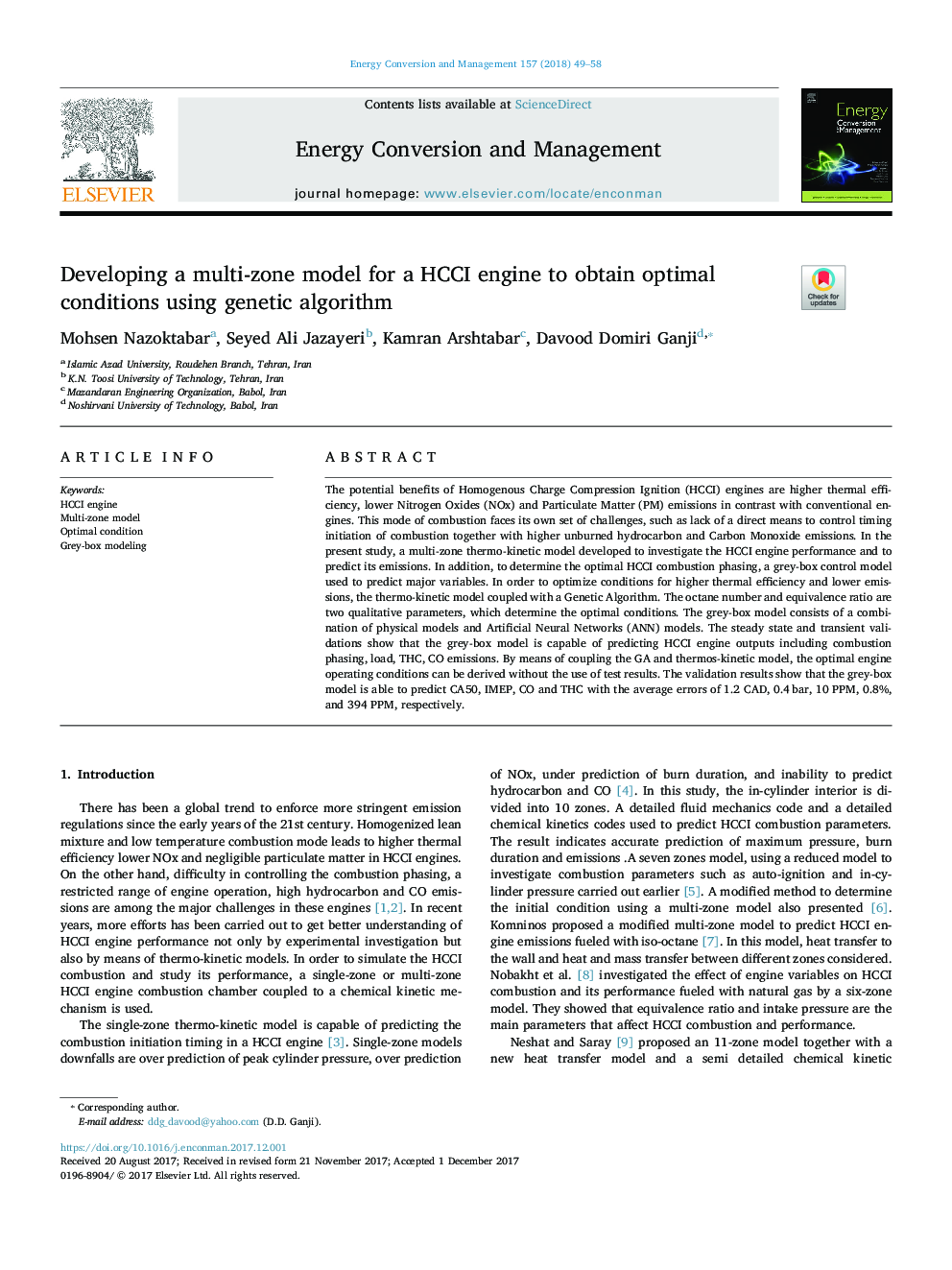| Article ID | Journal | Published Year | Pages | File Type |
|---|---|---|---|---|
| 7159311 | Energy Conversion and Management | 2018 | 10 Pages |
Abstract
The potential benefits of Homogenous Charge Compression Ignition (HCCI) engines are higher thermal efficiency, lower Nitrogen Oxides (NOx) and Particulate Matter (PM) emissions in contrast with conventional engines. This mode of combustion faces its own set of challenges, such as lack of a direct means to control timing initiation of combustion together with higher unburned hydrocarbon and Carbon Monoxide emissions. In the present study, a multi-zone thermo-kinetic model developed to investigate the HCCI engine performance and to predict its emissions. In addition, to determine the optimal HCCI combustion phasing, a grey-box control model used to predict major variables. In order to optimize conditions for higher thermal efficiency and lower emissions, the thermo-kinetic model coupled with a Genetic Algorithm. The octane number and equivalence ratio are two qualitative parameters, which determine the optimal conditions. The grey-box model consists of a combination of physical models and Artificial Neural Networks (ANN) models. The steady state and transient validations show that the grey-box model is capable of predicting HCCI engine outputs including combustion phasing, load, THC, CO emissions. By means of coupling the GA and thermos-kinetic model, the optimal engine operating conditions can be derived without the use of test results. The validation results show that the grey-box model is able to predict CA50, IMEP, CO and THC with the average errors of 1.2 CAD, 0.4â¯bar, 10 PPM, 0.8%, and 394 PPM, respectively.
Related Topics
Physical Sciences and Engineering
Energy
Energy (General)
Authors
Mohsen Nazoktabar, Seyed Ali Jazayeri, Kamran Arshtabar, Davood Domiri Ganji,
